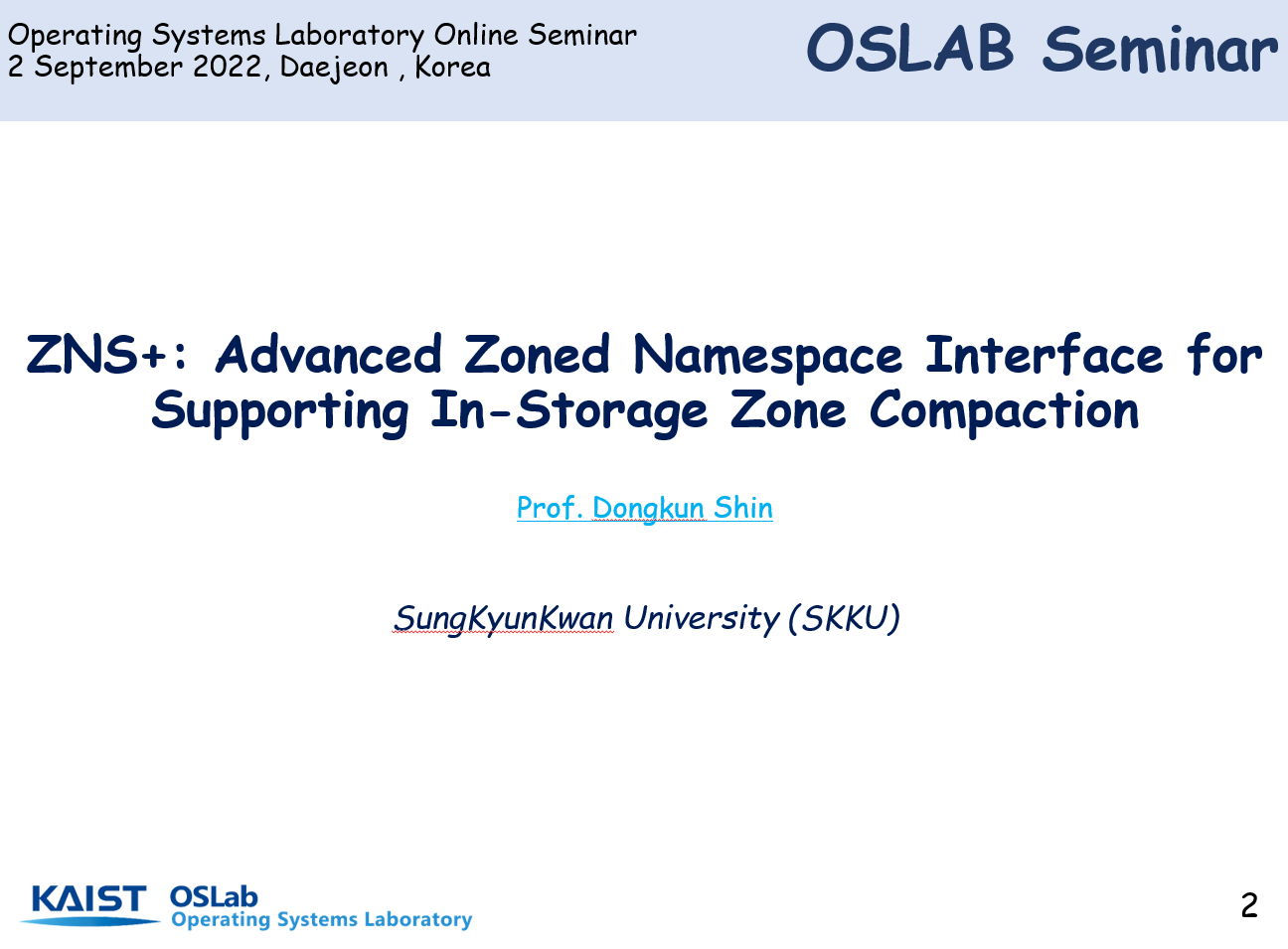운영체제 연구실 여러분 안녕하세요.
2022년 9월 2일 운영체제 연구실에서 주최하는 온라인 세미나가 열렸습니다.
이번 세미나의 주제는 “ZNS+: Advanced Zoned Namespace Interface for Supporting In-Storage Zone Compaction” 로 성균관대학교 신동군 교수님이 연사로 수고해주셨습니다.
세미나의 초록은 다음과 같습니다.
The NVMe zoned namespace (ZNS) is emerging as a new storage interface, where the logical address space is divided into fixed-sized zones, and each zone must be written sequentially for flash-memory-friendly access. Owing to the sequential write-only zone scheme of the ZNS, the log-structured file system (LFS) is required to access ZNS solid-state drives (SSDs). Although SSDs can be simplified under the current ZNS interface, its counterpart LFS must bear segment compaction overhead. To resolve the problem, we propose a new LFS-aware ZNS interface, called ZNS+, and its implementation, where the host can offload data copy operations to the SSD to accelerate segment compaction. The ZNS+ also allows each zone to be overwritten with sparse sequential write requests, which enables the LFS to use threaded logging-based block reclamation instead of segment compaction. We also propose two file system techniques for ZNS+-aware LFS. The copyback-aware block allocation considers different copy costs at different copy paths within the SSD. The hybrid segment recycling chooses a proper block reclaiming policy between segment compaction and threaded logging based on their costs. We implemented the ZNS+ SSD at an SSD emulator and a real SSD. The file system performance of the proposed ZNS+ storage system was 1.33–2.91 times better than that of the normal ZNS-based storage system.
The Log-Structured Merge (LSM) tree is considered well-suited to zoned namespace (ZNS) storage devices since the write requests to LSM-tree is sequential. However, zones can be partially invalidated and be fragmented during LSM-tree compaction. The partially-invalid zones cannot be utilized and thus space amplification becomes significant. To reclaim the invalid space, host-managed garbage collection (GC) is required, which increases the write amplification of ZNS storage and degrades I/O performance. We introduce a lifetime-leveling compaction (LL-compaction) tailored for ZNS SSD, which can alleviate space amplification without GC by making the sorted string tables in a zone have similar lifetimes. In our experiments using LevelDB, the LL-compaction achieved 1.7x better performance by removing GCs.

